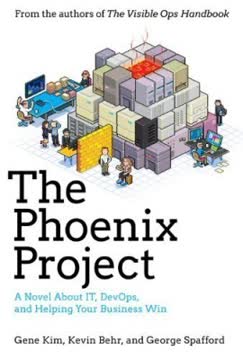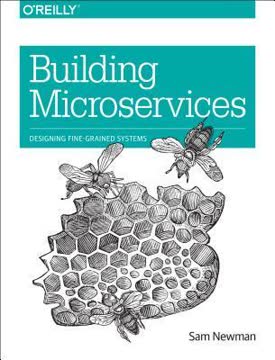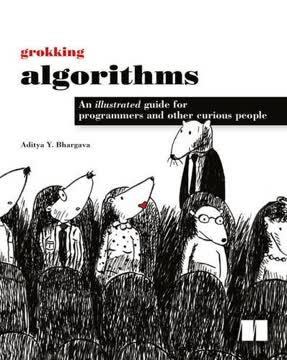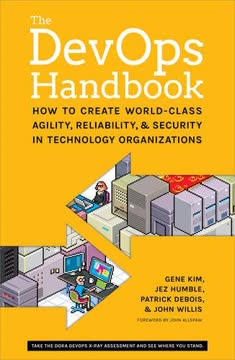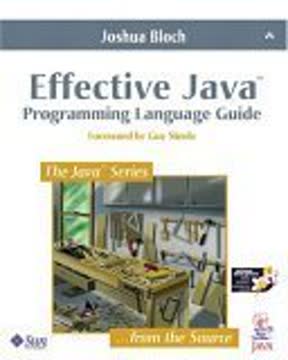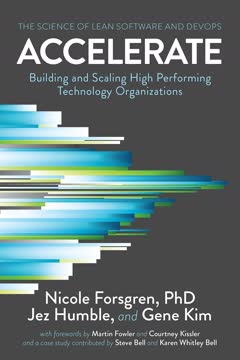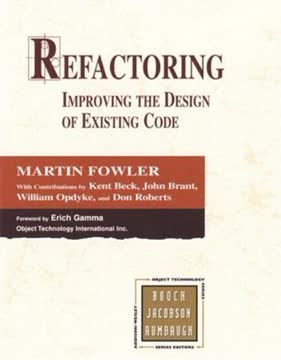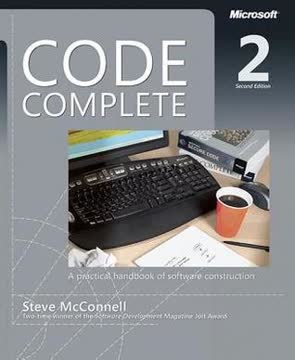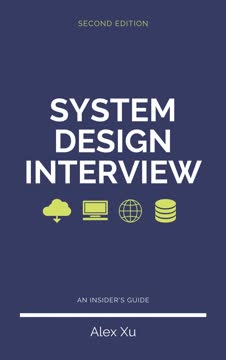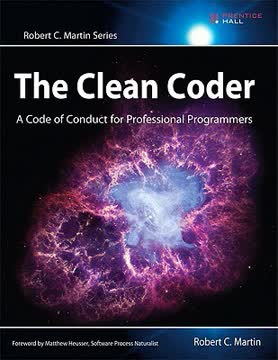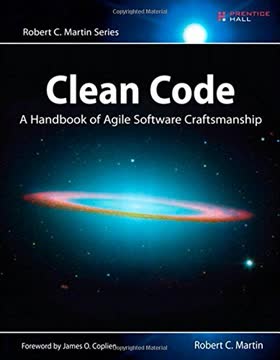ข้อสำคัญ
1. ความเป็นมืออาชีพในการพัฒนาซอฟต์แวร์ต้องรับผิดชอบและกล้าปฏิเสธ
"มืออาชีพพูดความจริงต่อผู้มีอำนาจ มืออาชีพมีความกล้าที่จะปฏิเสธผู้จัดการของตน"
การรับผิดชอบ คือหัวใจสำคัญของความเป็นมืออาชีพในการพัฒนาซอฟต์แวร์ หมายถึงการยอมรับความผิดพลาด ปฏิบัติตามสัญญา และส่งมอบงานที่มีคุณภาพสูง มืออาชีพเข้าใจว่าการกระทำของตนมีผลตามมา และพร้อมที่จะรับผิดชอบในสิ่งเหล่านั้น
การพูดว่า "ไม่" ก็เป็นอีกหนึ่งแง่มุมสำคัญของความเป็นมืออาชีพ ซึ่งรวมถึง
- ปฏิเสธกำหนดเวลาที่ไม่สมเหตุสมผล
- ต่อต้านแนวทางปฏิบัติที่ไม่ดี
- ไม่ยอมลดคุณภาพของงาน
- หลีกเลี่ยงการรับภาระงานเกินตัว
มืออาชีพตระหนักว่าการกล้าปฏิเสธเมื่อจำเป็นช่วยปกป้องทั้งตนเองและทีมจากความล้มเหลวที่อาจเกิดขึ้น และรักษาความสมบูรณ์ของงานไว้ได้
2. การพัฒนาด้วยการทดสอบก่อนเขียนโค้ด (TDD) เป็นสิ่งจำเป็นสำหรับโค้ดคุณภาพสูง
"คำตัดสินออกมาแล้ว ข้อถกเถียงจบลง TDD ใช้งานได้จริง"
ประโยชน์ของ TDD ได้แก่
- โค้ดมีคุณภาพดีขึ้น
- ลดอัตราข้อผิดพลาด
- การออกแบบและสถาปัตยกรรมดีขึ้น
- เพิ่มความมั่นใจในการเปลี่ยนแปลงโค้ด
TDD คือการเขียนชุดทดสอบก่อนเขียนโค้ดจริง วิธีนี้บังคับให้นักพัฒนาคิดถึงการออกแบบและฟังก์ชันของโค้ดก่อนลงมือเขียน ส่งผลให้โค้ดสะอาด เป็นโมดูล และดูแลรักษาง่ายขึ้น
การนำ TDD มาใช้ ต้องอาศัยวินัยและการฝึกฝน อาจทำให้การพัฒนาในช่วงแรกช้าลง แต่ผลตอบแทนในระยะยาวคือการลดบั๊ก ปรับปรุงคุณภาพโค้ด และทำให้การปรับปรุงโค้ดในอนาคตง่ายขึ้น
3. การบริหารเวลาและการมีสมาธิที่ดีเป็นกุญแจสู่ประสิทธิภาพการทำงาน
"การเขียนโปรแกรมเป็นกิจกรรมทางปัญญาที่ต้องใช้สมาธิและความตั้งใจเป็นเวลานาน"
การบริหารเวลาอย่างมีประสิทธิภาพ สำคัญสำหรับนักพัฒนาซอฟต์แวร์ ซึ่งรวมถึง
- การจัดลำดับความสำคัญของงาน
- หลีกเลี่ยงสิ่งรบกวน
- ใช้เทคนิคเช่นวิธี Pomodoro
- พักผ่อนเป็นระยะเพื่อเติมพลัง
การรักษาสมาธิ ก็สำคัญไม่แพ้กัน นักพัฒนาควรตระหนักถึงช่วงเวลาที่ตนมีประสิทธิภาพสูงสุดและจัดตารางงานให้เหมาะสม สร้างสภาพแวดล้อมที่เอื้อต่อการทำงานลึก และลดการรบกวนในช่วงเวลานั้น
มืออาชีพยังเข้าใจความสำคัญของการสมดุลชีวิตการทำงานและหลีกเลี่ยงการหมดไฟด้วยการจัดการพลังงานและให้เวลาสำหรับกิจกรรมส่วนตัวและการพักผ่อน
4. การประเมินเวลาเป็นทักษะที่ต้องฝึกฝนและสื่อสารอย่างชัดเจน
"การประเมินคือการคาดเดา ไม่มีการผูกมัด ไม่มีการให้สัญญา"
การพัฒนาทักษะการประเมิน ประกอบด้วย
- แบ่งงานเป็นชิ้นเล็ก ๆ ที่จัดการได้ง่าย
- ใช้ข้อมูลและประสบการณ์ที่ผ่านมา
- พิจารณาความเสี่ยงและความไม่แน่นอน
- ทบทวนและปรับปรุงการประเมินอย่างสม่ำเสมอ
มืออาชีพเข้าใจว่าการประเมินไม่ใช่การให้คำมั่น พวกเขาสื่อสารอย่างชัดเจนเกี่ยวกับความไม่แน่นอนและให้ช่วงเวลาประเมินแทนตัวเลขเดียวเมื่อเหมาะสม
การสื่อสารการประเมินอย่างมีประสิทธิภาพ เป็นสิ่งสำคัญ รวมถึงการอธิบายสมมติฐานเบื้องหลังการประเมิน ให้บริบท และแจ้งผู้มีส่วนได้ส่วนเสียหากสถานการณ์เปลี่ยนแปลง มืออาชีพยังต่อต้านแรงกดดันที่จะให้การประเมินที่ไม่สมจริงหรือรับปากกำหนดเวลาที่รู้ว่าเป็นไปไม่ได้
5. การจัดการความกดดันอย่างมืออาชีพต้องมีความสงบและยึดมั่นในวินัย
"นักพัฒนามืออาชีพสงบและเด็ดขาดเมื่อเผชิญความกดดัน"
การรักษาความสงบในสถานการณ์กดดัน เป็นลักษณะเด่นของความเป็นมืออาชีพ ซึ่งรวมถึง
- รักษามุมมองที่ถูกต้อง
- มุ่งเน้นที่การแก้ปัญหาแทนปัญหา
- สื่อสารอย่างชัดเจนกับทีมและผู้มีส่วนได้ส่วนเสีย
- หลีกเลี่ยงการตัดมุมหรือยอมลดคุณภาพ
มืออาชีพยึดมั่นในวินัยและแนวปฏิบัติที่ดีเมื่อเผชิญความกดดัน พวกเขาเข้าใจว่าการละทิ้งแนวทางที่ดีในช่วงเวลาคับขันมักนำไปสู่ปัญหาในระยะยาว
การจัดการความคาดหวัง ก็สำคัญเมื่อเผชิญความกดดัน ซึ่งรวมถึงความซื่อสัตย์เกี่ยวกับความท้าทาย การให้ข้อมูลอัปเดตเป็นประจำ และเสนอทางแก้ไขที่เป็นจริงแทนการให้สัญญาที่ทำไม่ได้
6. การทำงานร่วมกันและทีมเวิร์กเป็นพื้นฐานของความสำเร็จในการพัฒนาซอฟต์แวร์
"การเขียนโปรแกรมคือการทำงานร่วมกับผู้คน"
การทำงานร่วมกันอย่างมีประสิทธิภาพ ประกอบด้วย
- การสื่อสารที่ชัดเจน
- การฟังอย่างตั้งใจ
- การเคารพมุมมองที่หลากหลาย
- ความเต็มใจที่จะประนีประนอมและหาทางแก้ไขร่วมกัน
มืออาชีพเข้าใจว่าการพัฒนาซอฟต์แวร์เป็นกีฬาทีม พวกเขาทำงานอย่างแข็งขันเพื่อทำลายกำแพงแบ่งแยก แบ่งปันความรู้ และสนับสนุนเพื่อนร่วมงาน
การเขียนโปรแกรมคู่และการตรวจสอบโค้ด เป็นแนวปฏิบัติที่มีคุณค่าในการส่งเสริมการทำงานร่วมกันและปรับปรุงคุณภาพโค้ด มืออาชีพเปิดรับคำติชมและมองว่าเป็นโอกาสในการเติบโต ไม่ใช่การวิจารณ์
7. การเรียนรู้อย่างต่อเนื่องและการฝึกฝนเป็นสิ่งจำเป็นสำหรับการเติบโตในอาชีพ
"มืออาชีพฝึกฝน มืออาชีพแท้จริงทำงานหนักเพื่อรักษาทักษะให้คมและพร้อมใช้งาน"
การเรียนรู้อย่างต่อเนื่อง สำคัญในวงการพัฒนาซอฟต์แวร์ที่เปลี่ยนแปลงรวดเร็ว ซึ่งรวมถึง
- ติดตามเทคโนโลยีและแนวปฏิบัติใหม่ ๆ
- อ่านหนังสือและบทความ
- เข้าร่วมงานสัมมนาและเวิร์กช็อป
- ทดลองใช้เครื่องมือและเทคนิคใหม่ ๆ
การฝึกฝนอย่างมีจุดมุ่งหมาย ก็สำคัญไม่แพ้กัน ซึ่งรวมถึง
- ทำโปรเจกต์เสริม
- เข้าร่วมการแข่งขันเขียนโค้ด
- มีส่วนร่วมในโครงการโอเพนซอร์ส
- ทบทวนและปรับปรุงทักษะพื้นฐานอย่างสม่ำเสมอ
มืออาชีพเข้าใจว่าการเรียนรู้คือการเดินทางตลอดชีวิต และรับผิดชอบต่อการเติบโตและพัฒนาของตนเอง
8. การทดสอบยอมรับช่วยให้การสื่อสารความต้องการชัดเจน
"จุดประสงค์ของการทดสอบยอมรับคือการสื่อสาร ความชัดเจน และความแม่นยำ"
ประโยชน์ของการทดสอบยอมรับ ได้แก่
- ความเข้าใจความต้องการที่ชัดเจนขึ้น
- ลดความเข้าใจผิดระหว่างนักพัฒนาและผู้มีส่วนได้ส่วนเสีย
- ตรวจพบปัญหาและความไม่สอดคล้องได้ตั้งแต่เนิ่น ๆ
- ปรับปรุงคุณภาพซอฟต์แวร์โดยรวม
การทดสอบยอมรับทำหน้าที่เป็นข้อกำหนดอย่างเป็นทางการว่าระบบควรทำงานอย่างไร เขียนร่วมกันระหว่างนักพัฒนา ผู้ทดสอบ และผู้มีส่วนได้ส่วนเสียทางธุรกิจเพื่อให้เกิดความเข้าใจร่วมกัน
การทำให้การทดสอบยอมรับเป็นอัตโนมัติ ช่วยให้ได้รับข้อเสนอแนะเร็วขึ้นและจับข้อผิดพลาดซ้ำได้ตั้งแต่เนิ่น ๆ มืออาชีพสนับสนุนและนำการทดสอบยอมรับอัตโนมัติมาใช้ในกระบวนการพัฒนา
9. การให้คำปรึกษาและความชำนาญเป็นกุญแจสู่การพัฒนามืออาชีพที่มีทักษะ
"โรงเรียนสอนทฤษฎีการเขียนโปรแกรมคอมพิวเตอร์ได้ แต่โรงเรียนไม่สามารถสอนวินัย การฝึกฝน และทักษะของช่างฝีมือได้"
การให้คำปรึกษา มีบทบาทสำคัญในการพัฒนามืออาชีพที่มีทักษะ ซึ่งรวมถึง
- แบ่งปันความรู้และประสบการณ์
- ให้คำแนะนำและข้อเสนอแนะ
- ท้าทายผู้รับคำปรึกษาให้เติบโตและพัฒนา
- เป็นแบบอย่างของพฤติกรรมและแนวปฏิบัติที่เป็นมืออาชีพ
ความชำนาญในงานพัฒนาซอฟต์แวร์ ไม่ใช่แค่ทักษะทางเทคนิคเท่านั้น แต่ยังรวมถึง
- ความมุ่งมั่นในคุณภาพ
- การพัฒนาอย่างต่อเนื่อง
- จริยธรรมในการทำงาน
- ความภาคภูมิใจในผลงานของตน
มืออาชีพตระหนักถึงความรับผิดชอบในการให้คำปรึกษาและชี้แนะนักพัฒนาที่มีประสบการณ์น้อยกว่า เพื่อช่วยปลูกฝังคนรุ่นใหม่ที่มีทักษะและรักษามาตรฐานสูงในวงการต่อไป
อัปเดตล่าสุด:
FAQ
What's "The Clean Coder" about?
- Professionalism in Programming: "The Clean Coder" by Robert C. Martin is a guide to professional conduct for software developers, emphasizing the importance of professionalism in the field.
- Code of Conduct: It outlines a code of conduct for programmers, focusing on responsibility, accountability, and ethical behavior in software development.
- Practical Advice: The book provides practical advice on how to handle common challenges faced by programmers, such as dealing with pressure, managing time, and saying no.
- Improving Software Craftsmanship: It aims to improve the craft of software development by encouraging developers to adopt disciplined practices and continuous learning.
Why should I read "The Clean Coder"?
- Enhance Professionalism: Reading this book can help you enhance your professionalism and improve your reputation as a reliable software developer.
- Practical Guidance: It offers practical guidance on handling real-world challenges in software development, making it a valuable resource for both new and experienced programmers.
- Ethical Framework: The book provides an ethical framework for making decisions, which is crucial in maintaining integrity and trust in the workplace.
- Career Growth: By adopting the practices and principles outlined in the book, you can advance your career and contribute positively to your team and organization.
What are the key takeaways of "The Clean Coder"?
- Responsibility and Accountability: Programmers should take responsibility for their work and be accountable for their mistakes, striving to deliver high-quality software.
- Saying No: Learning to say no is crucial when faced with unrealistic demands or deadlines, ensuring that commitments are realistic and achievable.
- Continuous Learning: Developers should continuously learn and practice their craft to stay relevant and improve their skills.
- Testing and Clean Code: Emphasizes the importance of writing clean, maintainable code and using test-driven development to ensure software quality.
What is the "do no harm" approach in "The Clean Coder"?
- Avoiding Bugs: Programmers should strive to avoid introducing bugs into the software, as they can cause significant harm to the project and the business.
- Testing Thoroughly: Code should be thoroughly tested to ensure it works as intended, with automated tests providing a safety net for changes.
- Maintaining Structure: The structure of the code should be maintained to ensure it remains flexible and easy to change, preventing future issues.
- Continuous Improvement: Developers should continuously refactor and improve the codebase to prevent it from becoming rigid and difficult to work with.
How does "The Clean Coder" suggest handling pressure?
- Avoiding Pressure: The book advises avoiding pressure by managing commitments carefully and maintaining clean code to prevent last-minute crises.
- Staying Calm: Under pressure, developers should remain calm and rely on their disciplines and training to guide them through challenging situations.
- Effective Communication: Communicating effectively with the team and stakeholders can help manage expectations and reduce pressure.
- Seeking Help: When under pressure, seeking help from colleagues and collaborating can provide support and lead to better solutions.
What is the role of acceptance testing in "The Clean Coder"?
- Defining Done: Acceptance tests help define what "done" means for a feature, ensuring that all parties agree on the requirements and expectations.
- Automated Tests: These tests should be automated to provide a reliable and repeatable way to verify that the software meets the specified requirements.
- Collaboration: Acceptance tests are created through collaboration between developers, testers, and stakeholders, ensuring that all perspectives are considered.
- Reducing Ambiguity: By specifying requirements in the form of tests, ambiguity is reduced, leading to clearer communication and fewer misunderstandings.
What does "The Clean Coder" say about saying no?
- Importance of Saying No: Saying no is crucial when faced with unrealistic demands or deadlines, protecting the quality of the work and the well-being of the developer.
- Professional Responsibility: It is a professional responsibility to push back against requests that cannot be reasonably fulfilled without compromising standards.
- Negotiation: Saying no should be part of a negotiation process to find a mutually agreeable solution that meets the needs of the business and the capabilities of the team.
- Avoiding Overcommitment: By saying no when necessary, developers can avoid overcommitment and ensure they can deliver on their promises.
How does "The Clean Coder" define professionalism in programming?
- Taking Responsibility: Professionalism involves taking responsibility for one's work and being accountable for the outcomes, both good and bad.
- Continuous Improvement: Professionals continuously seek to improve their skills and knowledge, staying current with industry trends and best practices.
- Ethical Behavior: Ethical behavior is a cornerstone of professionalism, ensuring that developers act with integrity and honesty in all their dealings.
- Commitment to Quality: Professionals are committed to delivering high-quality software, adhering to best practices and standards to achieve this goal.
What is the significance of test-driven development (TDD) in "The Clean Coder"?
- Ensuring Quality: TDD is a discipline that helps ensure the quality of the software by writing tests before the code, guiding development.
- Confidence in Code: By having a suite of tests, developers can have confidence that their code works as intended and that changes won't introduce new bugs.
- Design Influence: TDD influences design by encouraging decoupled and testable code, leading to better architecture and maintainability.
- Professional Practice: TDD is presented as a professional practice that developers should adopt to improve their craft and deliver reliable software.
What are the best quotes from "The Clean Coder" and what do they mean?
- "Professionalism is all about taking responsibility." This quote emphasizes the importance of being accountable for one's work and actions as a software developer.
- "QA should find nothing." This highlights the goal of developers to deliver software that is so well-tested and reliable that QA finds no issues.
- "Saying yes to dropping our professional disciplines is not the way to solve problems." This warns against compromising standards and practices in the face of pressure or deadlines.
- "The only way to prove that your software is easy to change is to make easy changes to it." This underscores the importance of maintaining clean and flexible code that can be easily modified.
How does "The Clean Coder" address time management?
- Prioritizing Tasks: Developers should prioritize tasks based on their importance and urgency, focusing on what delivers the most value.
- Avoiding Meetings: Unnecessary meetings should be avoided to maximize productive time, with developers attending only those that are essential.
- Using Techniques: Techniques like the Pomodoro Technique can help manage time effectively by breaking work into focused intervals.
- Balancing Work and Life: Time management also involves balancing work with personal life, ensuring that developers maintain their well-being and avoid burnout.
What is the role of mentoring in "The Clean Coder"?
- Guiding New Developers: Mentoring is crucial for guiding new developers, helping them learn best practices and develop their skills.
- Sharing Knowledge: Experienced developers should share their knowledge and experience with less experienced colleagues to foster growth and development.
- Building a Culture: Mentoring helps build a culture of learning and improvement within a team, encouraging continuous development.
- Professional Responsibility: It is a professional responsibility for senior developers to mentor and support junior team members, contributing to the overall success of the team.
รีวิว
The Clean Coder ได้รับคำวิจารณ์ที่หลากหลาย โดยมีหลายคนชื่นชมในมุมมองลึกซึ้งเกี่ยวกับการพัฒนาซอฟต์แวร์อย่างมืออาชีพ ผู้อ่านให้ความสนใจกับเรื่องเล่าและคำแนะนำของผู้เขียนเกี่ยวกับจรรยาบรรณในการทำงาน การประเมินเวลา และการสื่อสาร อย่างไรก็ตาม บางคนมองว่าหนังสือเล่มนี้ล้าสมัยหรือมีความคาดหวังที่เข้มงวดเกินไป โดยเฉพาะเรื่องชั่วโมงการทำงาน นักวิจารณ์บางท่านชี้ให้เห็นถึงเรื่องราวที่ซ้ำซากและน้ำเสียงที่ดูเหมือนเน้นตัวเอง แม้จะมีความเห็นที่แตกต่างกัน แต่ส่วนใหญ่ยังคงแนะนำหนังสือเล่มนี้ว่าเป็นแหล่งข้อมูลที่มีคุณค่าสำหรับโปรแกรมเมอร์มือใหม่ โดยเน้นย้ำถึงความสำคัญของวินัย ความรับผิดชอบ และการเรียนรู้อย่างต่อเนื่อง
Similar Books

